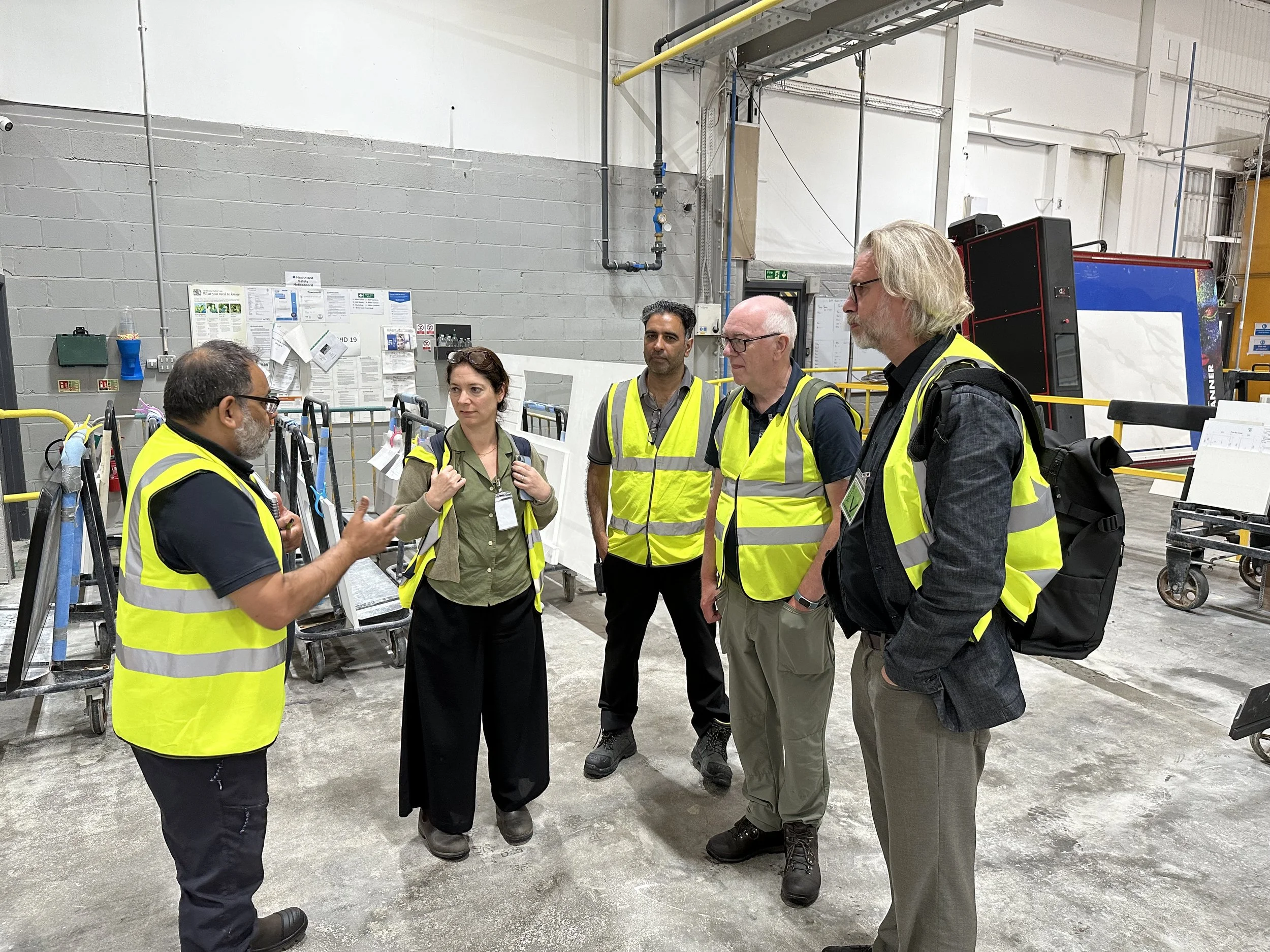SILICOSIS AND THE WFF
WFF Members Granite Tops facilities, Preston
FABRICATORS & SILICOSIS
Medical experts and professional clinicians are the headline-writer’s bane: they will insist on gathering evidence and weighing data, rather than making sensationalist-sounding calls for product bans and prosecutions!
The specialists who are currently investigating UK cases of occupationally-acquired silicosis have certainly seen it from the victim’s point of view. Now they’ve seen it from the fabricator’s point of view, too. Or, at least, from the professional, HSE-compliant fabricator’s point of view.
WFF’s two Preston Members – Granite House and Granite Tops made themselves available to open their doors at very short notice to host the occupational specialists at their factories on August 12. Because diaries were so hard to synchronise, the trip was only agreed the previous Friday – meaning the experts really got a warts-and-all experience of the realities of worktop production lines.
WFF Members Granite Tops facilities, Preston
SILICOSIS EXPERTS VISIT WFF MEMBERS
Dr Johanna Feary from the Royal Brompton in London, Prof. Martie van Tongeren from Manchester University and Mike Slater from the British Occupational Hygiene Society met Brian and Anjum from Granite Tops in the morning. Then crossed town in time for the start of the afternoon shift at Granite House, where they were hosted by Arif & Bill.
WFF Members Granite House facilities, Preston
WORKPLACE EXPOSURE LIMITS
Wet-cutting, extraction, water recycling, sludge removal, hand-finishing: everything from bridge-saws to air-handling units was explained to the experts, as they came face to face with the realities of modern manufacturing processes & the various solutions WFF members have put in place to keep their workers the right side of the Workplace Exposure Limits(WELs).
“It was hugely useful to get both sets of experts face to face,” said WFF’s Chris Pateman, who facilitated the meeting. “Ideas came out in conversation that might never have arisen if we had stayed in our respective bubbles. The idea of preventative CAT scans, instead of retrospective X-rays, for example, is something only a medical expert with access to NHS resources could consider.
“This was a really useful next step in WFF’s engagement with the academics. Despite what the newspapers might want us to believe, we are all on the same side here: nobody wants to see our workers put at risk, and everyone wants the safest-possible industry.”
• The academic research so far confirms WFF members’ concerns that the affected workers have been at the less well-regulated end of the industry. The report’s executive summary notes:
“We report eight UK cases of AS silicosis in young men. Most were migrant workers, vulnerable to exploitation in the workplace and health inequalities,6 with short exposure histories…Our cases are generally younger than those reported in the literature but with exposure histories similar to those described in Australia and California.
“Onset of disease is likely to relate to exposure levels, suggesting levels, at least for some of the UK cases (and in particular the case of acute silicoproteinosis), were extremely high and implying that employers failed to control dust exposure and to adhere to health and safety regulations. The AS market is dominated by small companies in which regulation has been shown to be challenging to implement.11 Furthermore, at least some worktop manufacturers may fail to provide adequate technical information relating to potential risks.”
WFF Members Granite House facilities, Preston
THANK YOU TO OUR SPONSORS, MEMBERS AND SUPPLIERS FOR THE INFORMATION AND IMAGES.
For help and guidance with your latest Projects, please tap the button below to find a WFF member near you.



